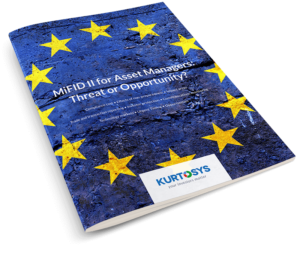We all say different things to different people from time to time, generally with confidence that a nuance here and an emphasis there won’t come back to haunt us. For asset managers, however, the risk of not speaking with one voice at every juncture is becoming greater by the day; there’s a real danger that mixed messages could lead to significant tax and compliance headaches.
Asset managers have to disclose information to a number of different audiences. Their customers – the investors – understandably want detailed communications about the progress of their investment funds. Their regulators demand extensive declarations as they seek to ensure asset managers are compliant. And the tax authorities represent a third audience, seeking the information they need to determine whether asset managers are paying the right amount of tax.
For most asset managers, the responsibility for these different disclosures sits in different places – the marketing function may have primary responsibility for investor disclosures, say, while compliance takes charge of communicating with the regulator and operational tax deals with the tax authorities. They may even have third party agents – custodians, for example – that also share some of the burden of disclosure.
Moreover, too many asset managers operate in disconnected silos. With different priorities, the risk is that where these functions do not communicate with one another properly, they end up saying different things. The disclosures they make do not tally with one another – even if they are not contradictory, they may be inconsistent.
In the past, subtle variations probably didn’t matter too much. But that is now changing – for two reasons. First, regulatory reforms such as UCITS V and, in particular, MiFID II require asset managers to disclose more data than ever before about their activities, which substantially increase the chances of a disconnect. And second, anomalies are much more likely to be spotted because regulators and tax authorities are actively looking for them, and have better tools at their disposal as they do so.
In the UK, for example, the Financial Conduct Authority, the Prudential Regulation Authority and HM Revenue & Customs have said publicly that they intend to share the disclosures made to them by asset management companies (and other regulated financial services businesses). They have at their disposal sophisticated data and analytics tools that will very quickly flag up anomalies. Asset managers that say different things to different people, in other words, will get caught out.
This isn’t to suggest that asset managers have been trying to get away with something – simply that the information they disclose to various authorities in a range of publications isn’t always standardised and aligned. In which case, they should expect to be asked searching questions about such mis-matches – and even if such conversations do not least to, say, additional tax liabilities or regulatory confrontation, they will be a drain on resources, costing both time and money.
The solution for asset managers must be to head off such problems before they occur. They’re going to need to ensure that there is only one version of their business activities – and that every function of the business responsible for making disclosures does not deviate from this blueprint.
In practice, that will mean investment in new tools and technologies that facilitate consistent data and communication standards. However, asset managers have been slow to move in that direction – for example, one recent study published by PwC found that fewer than one in 10 UK asset managers has, over the past four years, invested in new technology solutions that will deliver accurate and timely tax compliance.
This is going to have to change. In a world where asset managers are under pressure to be more transparent with all their stakeholders, it will be crucial to ensure that this transparency doesn’t unwittingly expose the business to unnecessary tax and compliance costs. Saying different things to different people has to become a thing of the past.
 The European Union (EU) MiFID II regulations, which come into effect in January 2018, will have a huge impact on the asset management industry. But many managers do not yet have the technological solutions to comply and thrive in the new regime and software providers expect a capacity crunch as investment houses rush to prepare. We look at some of the issues and opportunities.
The European Union (EU) MiFID II regulations, which come into effect in January 2018, will have a huge impact on the asset management industry. But many managers do not yet have the technological solutions to comply and thrive in the new regime and software providers expect a capacity crunch as investment houses rush to prepare. We look at some of the issues and opportunities.
White Paper: MiFID II for Asset Managers: Threat or Opportunity?
 The European Union (EU) MiFID II regulations, which come into effect in January 2018, will have a huge impact on the asset management industry. But many managers do not yet have the technological solutions to comply and thrive in the new regime and software providers expect a capacity crunch as investment houses rush to prepare. We look at some of the issues and opportunities.
The European Union (EU) MiFID II regulations, which come into effect in January 2018, will have a huge impact on the asset management industry. But many managers do not yet have the technological solutions to comply and thrive in the new regime and software providers expect a capacity crunch as investment houses rush to prepare. We look at some of the issues and opportunities.



